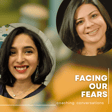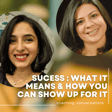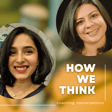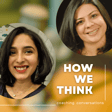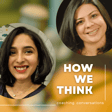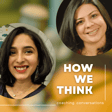
Unpacking Bias
Bias refers to the systematic and often unconscious inclination or prejudice in favor of or against a particular person, group, or thing. It involves the distortion of judgment or decision-making processes, leading to unfair or unbalanced treatment of individuals or groups based on factors such as race, gender, age, religion, ethnicity, socioeconomic status, or other characteristics.
Join us on this engaging podcast as we discuss the various aspects of this most complex of concepts.
The Platinum Rule https://eller.arizona.edu/news/2022/04/how-better-understand-your-biases-biases-others1
Unconscious Gender Bias: Implication for Women's Leadership Development https://www.researchgate.net/publication/325914582_Unconscious_Gender_Bias_Implications_for_Women's_Leadership_Development
Ted Talk by J Marshall Shephard
